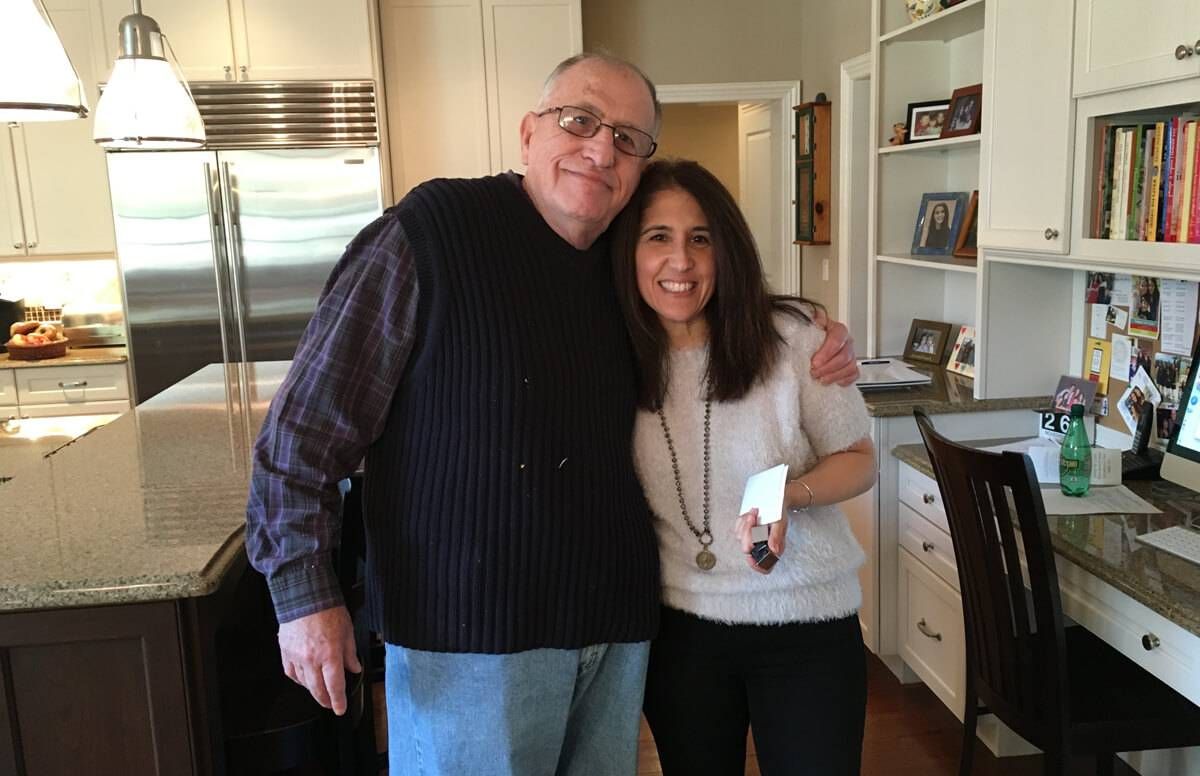How His Stint in Acute Care Connected My Dad and Me
Spending time together led to a stronger relationship
When the doctors told us that my dad was being sent to an acute rehabilitation facility, I almost cried. It had been one piece of bad news after another, and I couldn’t take much more.

My 70-year old father had abdominal surgery. It was supposed to take three hours, but instead it lasted over seven. An estimated hospital stay of a week had turned into a month due to severe complications. Once he was ready to be released, he was too weak to go home — thus the need for acute rehab, so he could regain his strength. And unrelated, while he was in the hospital, tests found my father had lung cancer.
Doctors hoped that with physical and occupational therapy, my dad could get strong enough so they could eventually treat the cancer. But that seemed unlikely; he was so frail and depressed. I remember walking into his rehab room and finding him sitting in his wheelchair, staring at his fingernails.
And yet, as bad as those first few days were, ultimately his stay in rehab provided us with some of the best days we ever spent together. Not only did my father regain his strength, we also got a chance to strengthen our relationship.
Difference Between Loving a Daughter and Understanding Her
When I was growing up, I knew my dad adored me, but I also realized he didn’t know what to do with me. There was a gender divide in our house where I mostly spent time with my mom, and my dad focused on my brothers because he was more comfortable with them.
When I was a teen, our differences grew. Friends would always say, “I love your dad, he’s so funny!” but I didn’t always think so. I found him controlling and quick to lose his temper. We argued a lot, partly because we were very different, but more because we were similar. He loved me, but he didn’t understand me.
Things between us improved when I got married and had kids of my own. He enjoyed being a grandpa, especially to my son. We still didn’t see eye to eye, but we saw each other less often so we didn’t argue quite as much. Still, I wouldn’t say that we were close.
Monotony Leads to Conversation
The first few days at the rehab center were tough. Dad was depressed, and understandably so. He was refusing to try in therapy and was losing his temper with the staff.
I was angry, too. I was traveling 2 ½ hours each way, several days a week, to be with him and he didn't seem to care. He didn't want to be there; he didn't want to get better. Meanwhile, my house was falling apart and I felt like I never saw my kids or my husband.
Dad and I didn't have the best relationship; I don't know why I kept going back, and yet I did.
One afternoon, out of sheer boredom, I asked my dad a question about his childhood. His face brightened and for the first time in weeks, he was animated. He talked about his mother, his father and his sister. He told me about his clubhouse and "The Dukes," his high school friend group. I loved hearing these stories about my dad before he was my dad.
I don't remember ever talking with Dad like that, just about stuff. When I was younger, I wasn't interested, and when I got older, I was too busy with my own family. But at the rehab center, we had nothing but uninterrupted time alone together. Instead of dreading my trips, I began to look forward to our conversations.
Sometimes we spoke about serious topics like history and politics. Other afternoons we spent hours discussing plotlines on Happy Days and whether Carvel was the actually the world's best ice cream.
Things Start to Improve
My dad’s mood then started to improve. He began working hard in therapy and slowly his strength started to come back. He was able to walk around the hall with assistance and this fueled him to want to walk further the next day.
I remember coming in for a visit and Dad was sitting at the table doing occupational therapy with several other patients. Actually, what they were really doing was playing with clay. It made me sad to see these once vibrant adults forced to participate in an activity more suited to preschoolers.
Dad looked over at me and realized I was getting upset. I told him not to worry about me, but to keep working. After a few minutes, he smiled like a kid with a secret and called over, “Look at my project!” I saw he had created a phallic object with his clay and we both started cracking up. It made me realize that my friends were right and that my dad is pretty funny. I also knew in that moment that he was going to get better.
The Gift of More Time
On Super Bowl Sunday that year, six weeks after he entered rehab, my dad left the rehab center. The staff clapped and we did, too. As luck would have it, my dad was able to get on a drug trial for an immunotherapy drug and four years later, he is still doing great.
Once Dad went home, I didn’t see him as often. We both got busy, doing things we enjoy. And that's a good thing. But we talk on the phone often and there is a closeness that wasn’t there before. Neither of us had any idea that his time in the rehab center would not just heal him, but that it would also heal us. We let go of the past and got to know each other in the present.
More than once, my dad has told me he misses our days at the rehab center where we talked and laughed and were able to give each other our undivided attention for a few hours.
I can’t say I miss going there, but I do feel very grateful to have had that opportunity. It allowed me to get to know my dad, and for him to know me. And for both us to realize how much we mean to one another.


